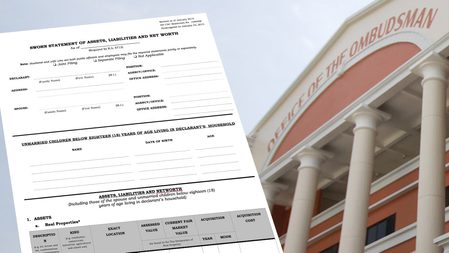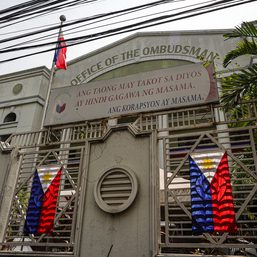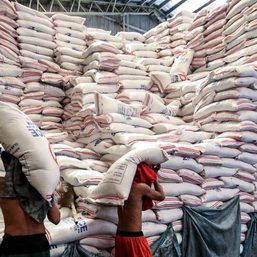SUMMARY
This is AI generated summarization, which may have errors. For context, always refer to the full article.
![[OPINION] Saving the SALN from ourselves](https://www.rappler.com/tachyon/2020/09/TL-saln-1.jpg)
The following is Part 1 of a two-part series. Read Part 2 here.
The SALN is required under Article XI Section 17 of the 1987 Constitution and other laws, including Section 8 of Republic Act No. 6713, the Code of Conduct and Ethical Standards for Public Officials and Employees, and Republic Act No. (RA) 3019, or the Anti-Graft and Corrupt Practices Act.
Aside from these laws, the Supreme Court over the years promulgated decisions where the SALN is at the core of the case. But I would like to draw attention to the case of Re: Request of Philippine Center for Investigative Journalism (PCIJ) for the 2008 SALN and personal data sheets of the Court of Appeals justices, where the Supreme Court gave significant pronouncements on the nature of the SALN requirement and its public disclosure.
Here, the Court explained “…while ‘public concern’ like ‘public interest’ eludes exact definition and has been said to embrace a broad spectrum of subjects which the public may want to know, either because such matters directly affect their lives, or simply because such matters naturally arouse the interest of an ordinary citizen, the Constitution itself, under Section 17, Article XI, has classified the information disclosed in the SALN as a matter of public concern and interest. In other words, a ‘duty to disclose’ sprang from the ‘right to know.’ Both of constitutional origin, the former is a command while the latter is a permission. Hence, the duty on the part of members of the government to disclose their SALNs to the public in the manner provided by law.”
Regulating access to the SALN
In the same case, the High Court clarified that, “Like all constitutional guarantees, however, the right to information, with its companion right of access to official records, is not absolute. While providing guaranty for that right, the Constitution also provides that the people’s right to know is limited to ‘matters of public concern’ and is further subject to such limitations as may be provided by law.”
It has been established by law and jurisprudence that while no prohibition can stand against the right of access to official records, such as the SALN, the same is subject to regulation. This is the rulings of the Court in Subido vs. Ozaeta, 80 Phil 383 and Teodoro Berdin, et. al. vs. Mayor Eufracio A. Mascariñas, et. al., Municipality of Tubogon, Bohol, G.R. No. 135928, July 6, 2007, that government offices having custody of public documents, like SALNs, may prescribe reasonable rules and regulations relative to the manner with which the public may examine/scrutinize/reproduce/copy the subject documents. Thus, for instance, Section 8 (c) and (d) of R.A. No. 6713 provides for the limitation and prohibition on the regulated access to SALNs of government officials and employees.
Under the same law for instance, it is unlawful for any person to obtain or use any statement filed for (a) any purpose contrary to morals or public policy; or (b) any commercial purpose other than by news and communications media for dissemination to the general public. However, in the PCIJ decision, the Supreme Court also reminded that custodians have no authority “to prohibit access, inspection, examination, or copying of the [public] records” despite having the discretion to regulate the manner in which records may be inspected, examined, or copied by interested persons.
Weaponizing the SALN
Having said this, it has become clear that the SALN has been misused and weaponized. The Corona impeachment opened a genie, a monster of bad governance and politics, that we must put back into the bottle. It would again be employed to oust Chief Justice Sereno in 2018. Anecdotally, since the Corona case, SALN complaints have been used to exact vengeance, silence a critic, outmaneuver a rival in the office, or persecute a perceived opponent.
The misuse of the SALN is once again brought to the fore with the filing of petitions by the Office of the Solicitor General (OSG) and Atty. Larry Gadon to request for copies of Justice Leonen’s SALN before the High Court. The petitions were seen as prelude to the filing of a quo warranto case against Leonen. Thankfully and rightly, the Supreme Court voted unanimously to deny the requests, this time not allowing itself to be a weapon against its own member.
This refusal to release the SALN of Leonen is a remarkable decision because the Court acted to protect its most prominent and senior dissenter. The Ombudsman and the University of the Philippines should be guided by this decision and not just for a Justice of the Supreme Court but for all officials. I laud the leadership of Chief Justice Diosdado Peralta for asserting the independence of the Judiciary in this important matter.
Interestingly, as early as in 1992, in the case of Re: Request for Certified True Copies of the Sworn Statements of Assets, Liabilities, and Net Worth, the request for SALN was denied because the Court found that the purpose of the request was to fish for information against certain members of the Judiciary.
On a personal basis, having known and worked with Justice Leonen for 35 years (from when we were students in UP Law to decades of working together in the College of Law of the University of the Philippines and the Legal Rights and Natural Resources Center, the human rights and environmental justice organization we co-founded in the 1980s), is that his integrity cannot be questioned. You can disagree with him or even dislike him, but his honesty and forthrightness cannot be questioned.
The SALN was and is a good idea. But we must save it from ourselves. – Rappler.com
Tony La Viña teaches law and is former dean of the Ateneo School of Government.
Add a comment
How does this make you feel?

![[WATCH] Bamban POGO scandal: There’s a bigger fish than Alice Guo](https://www.rappler.com/tachyon/2024/07/inside-track-tcard-bamban-pogo.jpg?resize=257%2C257&crop=435px%2C0px%2C1080px%2C1080px)



![[OPINION] What kind of citizens are we?](https://www.rappler.com/tachyon/2024/07/tl-what-kind-of-citizen-are-we.jpg?resize=257%2C257&crop=333px%2C0px%2C1080px%2C1080px)



![[Vantage Point] China’s silent invasion of the Philippines](https://www.rappler.com/tachyon/2024/07/TL-china-silent-invasion-july-16-2024.jpg?resize=257%2C257&crop=318px%2C0px%2C720px%2C720px)




There are no comments yet. Add your comment to start the conversation.